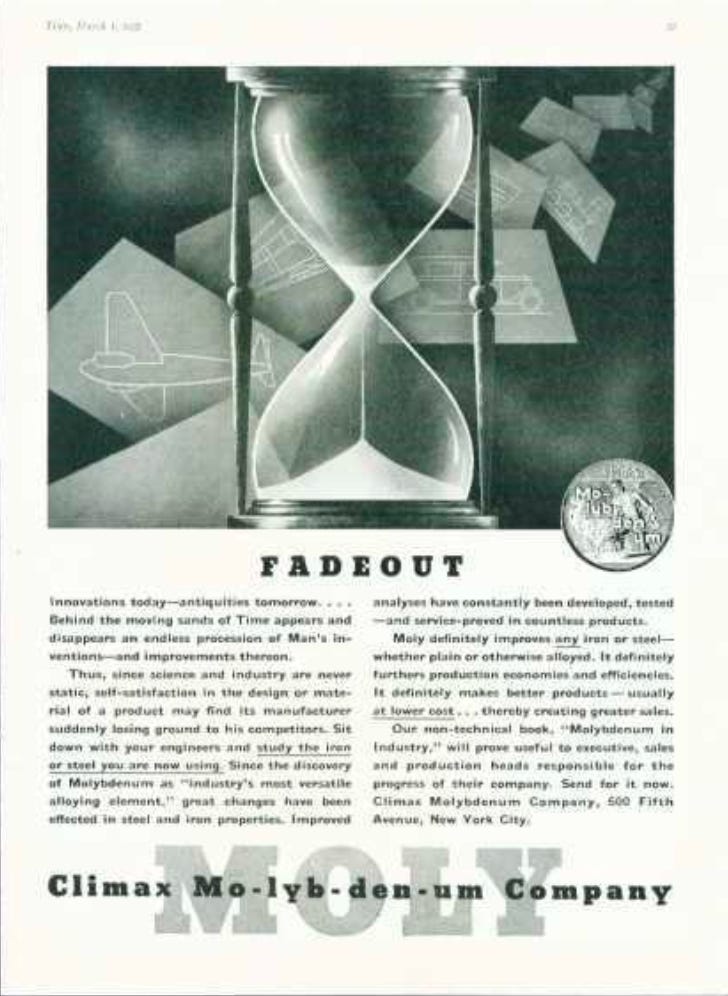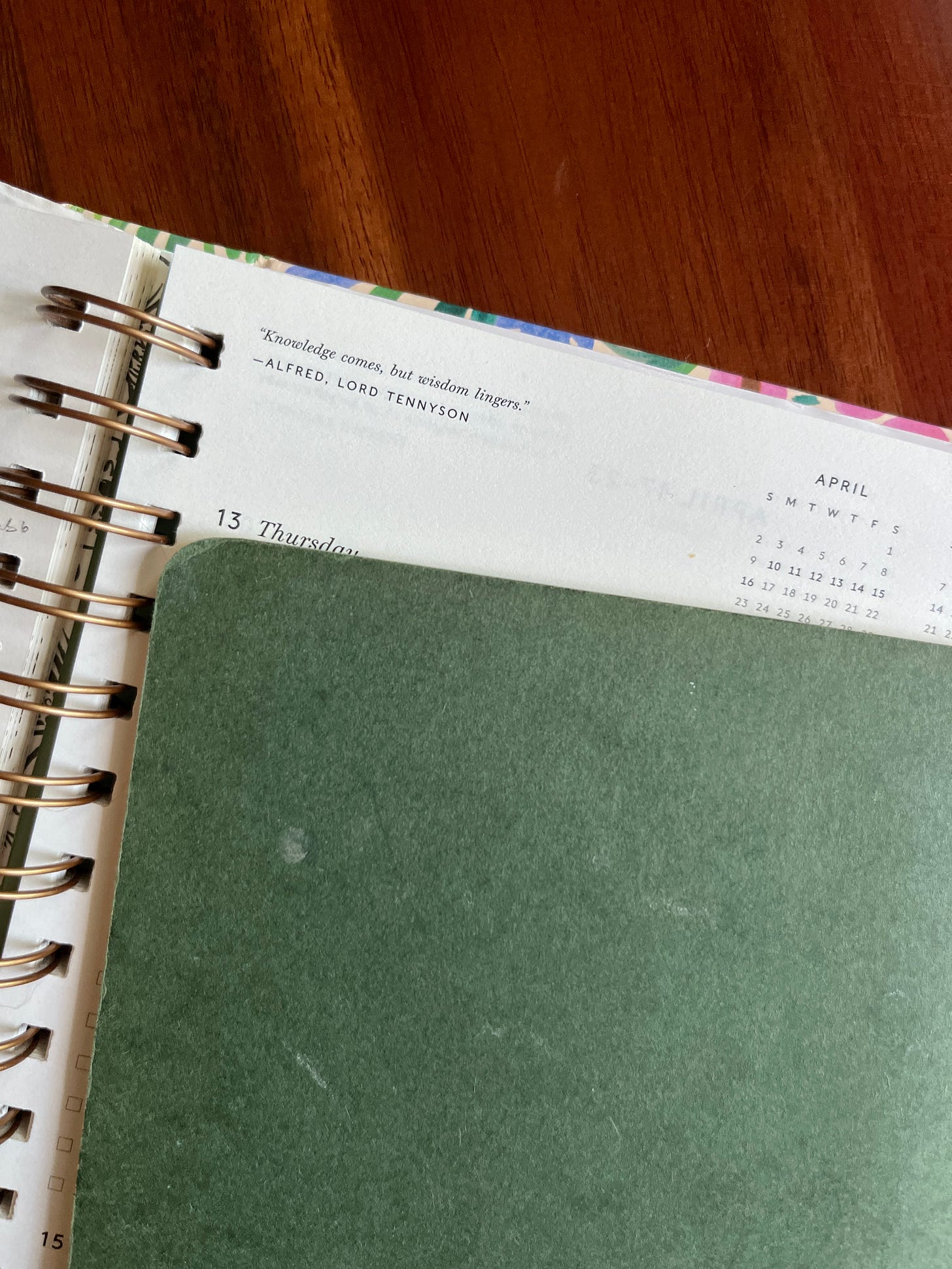I still use a paper planner to organize my days, which is decidedly very un-modern.
It’s not that I like to do things the hard way, but so much of life is filtered through a screen that I just really enjoy the tangible act of etching and erasing ideas and plans in pencil; visually processing the demands and desires of the day (or week or year). “Penciling in” is a constant dance of prioritizing, a response to the question famously asked by Benjamin Franklin: What good shall I do this day?
Every year, for the past several now, I purchase the same campy Rifle Paper Co. spiralized 17-month planner. Because this planner always begins in August, and I always buy my planner in January (or December if I’ve thought ahead), I rip out chunks of pages I have no need for, torn edges signifying days already transpired. But before recycling the superfluous pages (George Banks ringing in my mind…), I always read through the quotes atop each week’s spread.
It’s someone’s job at Rifle Paper Co.— probably an editorial designer— to pick out the 70-odd quotes for a 17-month calendar. I wonder if this person has favorites, or if they ever re-use a quote year after year. (If they do, I haven’t noticed.)
Sometimes the weekly quotes are nice, quaint little things to think about for a moment. And sometimes the weekly quotes are world-shaking reminders, like what I came across a couple weeks ago:
“Knowledge comes, but wisdom lingers.”
Hmm. How to think about that in a fast-moving life? I’m overwhelmed with access to information, endless things to know. The stuff of knowledge seems to sputter from every channel I turn my attention.
And of course, I’m also thinking about this in regard to “time is money”, particularly the theme my editorial calendar has me covering this week: “fast is modern”. And if fast is modern, then is slow… the pace at which ideas percolate; the pace at which facts synthesize with reason and context and heart; the gummy pace at which wisdom develops… decidedly un-modern? Much like my paper planner habit?
Welcome back to our series, twenty shades of “time is money”. Every Tuesday we’re breaking down findings from my research on social acceleration, marketing, and consumer culture.
This research helped me better understand my own relationship to time and consumption (and specifically, the felt need to constantly be busy and hurry through life and buy things as an antidote to this frenzy). Thank you for reading, and I hope there is a nugget of inspiration for you here too.
“Fast is modern” is a theme thick with a sense of forward-imagination and innovative progress. A glimpse of the future. Scientific revolutions. Speed of light. Prompt delivery to a newer and better life. Modernity delivers the future through mastery of time and other resources (such as data, below).


I’m still thinking about the modern aspect of the “time is money” cultural myth and the implications for the quote listed on my planner:
“Knowledge comes, but wisdom lingers.”
Knowledge feels so modern. So new and cutting-edge, a la “I have the latest and greatest information!” It’s easy to come by. It’s easy to lose. (I can’t remember half of the very important and very interesting podcasts I listened to last week.)
Wisdom feels old and uncelebrated, yet enduring. Something to seek out. Something to hold onto. Something worth slowing time down for. Something worth $34 - the annual cost of my paper planner.






Tennyson’s quote captures the sustainability of wisdom, like a steel vault. Knowledge is merely a screen, filtering the useful from the impractical. Wisdom lingers as does a vault made of steel.